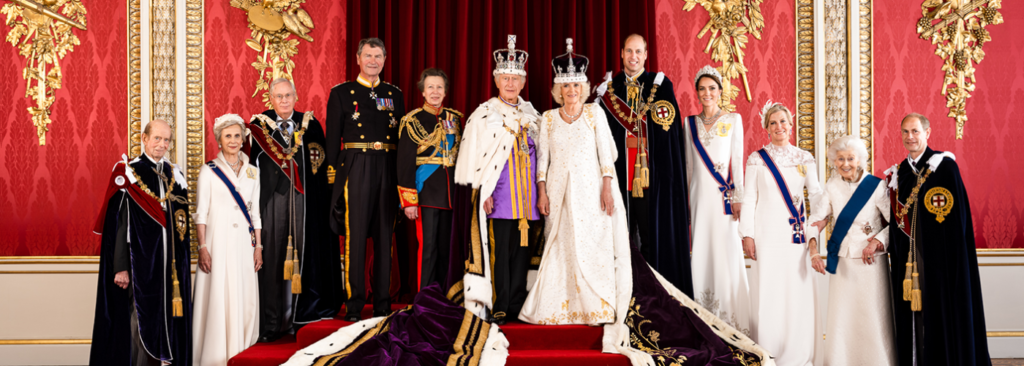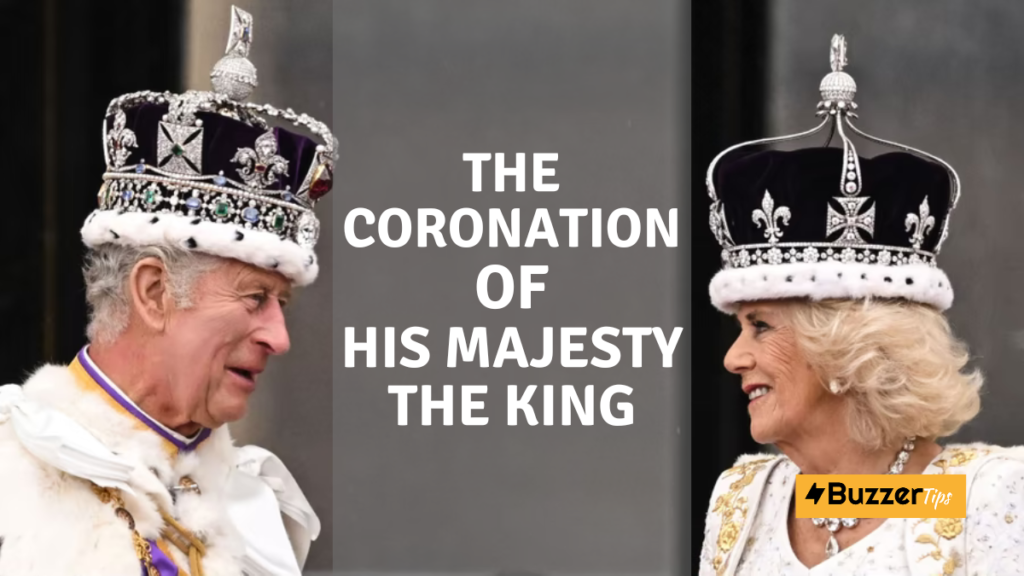
The coronation ceremony for King Charles III and his wife Camilla occurred on May 6, 2023, at Westminster Abbey, following an Anglican service of Holy Communion. During the ceremony, Charles was anointed with holy oil and given the coronation regalia to signify his spiritual role and secular responsibilities. The coronation of Charles III was the first to take place in the 21st century, and the 40th to occur at Westminster Abbey since William the Conqueror’s coronation in 1066.
King Charles III’s rise to the throne followed the death of Queen Elizabeth II on September 8, 2022. He was proclaimed king by the Accession Council of the United Kingdom on September 10, followed by similar proclamations in other Commonwealth realms. Planning meetings for Charles’s coronation were held at least once a year during Elizabeth’s reign, with representatives from the government, the Church of England, and Charles’s staff.
The earl marshal, Edward Fitzalan-Howard, was responsible for the coronation ceremony, and a committee of privy counselors arranged the event. The date for the coronation, May 6, 2023, was announced on October 11, 2022, to allow sufficient time for mourning Queen Elizabeth II before holding the ceremony.
To manage the ceremonial roles and claims for the coronation, the Coronation Claims Office was set up under the Cabinet Office, replacing the Court of Claims. Additionally, the titles of Lord High Steward and Lord High Constable of England, which are only used for coronations, were bestowed upon Admiral Sir Tony Radakin and General Sir Gordon Messenger, respectively.
The ritual was centered on the Holy Communion service and encompassed Charles pledging an oath, receiving the anointment of holy oil, and being invested with the coronation regalia. After the service, members of the royal family proceeded in a state procession to Buckingham Palace and appeared on the palace’s rear and front balconies.
The holy anointing oil used in the service was consecrated at the Church of the Holy Sepulchre on March 6, 2023, by Patriarch Theophilos III of Jerusalem, under the supervision of Hosam Naoum, the Anglican archbishop of Jerusalem. The oil was based on the same formula used in Elizabeth II’s coronation but without animal products like civets.
The coronation elicited celebrations and protests in the United Kingdom and other Commonwealth realms. Festivities in the United Kingdom included street parties, volunteering, special church services, and a concert at Windsor Castle on May 7. Surveys in April 2023 suggested that the British public had mixed feelings about the event and its funding. While the events in London and Windsor drew large crowds, they also faced opposition from Republican groups. Commonwealth realms like Antigua and Barbuda, Canada, Australia, and New Zealand held celebrations, while some Indigenous groups and other realms used the event to highlight issues like the effects of British colonialism.
The coronation ceremony underwent changes from previous British coronations to symbolize the diversity of faiths, cultures, and communities in the United Kingdom and was also shorter than Queen Elizabeth II’s coronation in 1953. Roughly 2,200 guests from 203 countries were invited, including members of the British royal family, representatives from the Church of England and other British faith communities, prominent politicians from the United Kingdom and the Commonwealth, and foreign heads of state.
As King Charles III begins his reign, he will undoubtedly face challenges and opportunities. Nevertheless, the coronation ceremony has provided a sense of continuity and stability during a time of uncertainty, as well as a renewed sense of pride and optimism in the United Kingdom and the Commonwealth. The ceremony itself was a blend of tradition and modernity, emphasizing inclusivity and diversity and reflecting the changing nature of British society.
Despite some protests and criticisms, the coronation of King Charles III and Camilla was a significant moment in British history, marking the beginning of a new era for the monarchy and the country as a whole. With the focus on the values and priorities of the new monarch and his family, the ceremony has set the tone for their reign and the future of the United Kingdom.
As we move into this new era, we can see the coronation as a symbol of hope and unity. With a monarch who is committed to representing and serving all people, regardless of background or belief, we can be optimistic about the future of the United Kingdom and the Commonwealth. The coronation of King Charles III was not only a historic event, but a reminder of the resilience and strength of the British people, and their ability to face challenges with grace and determination.



1 Comment
Pingback: King Charles III - BuzzerTips